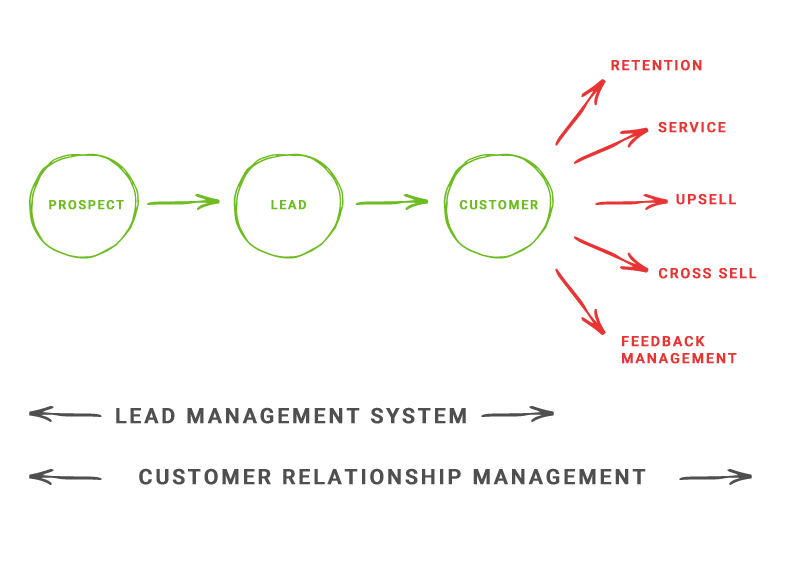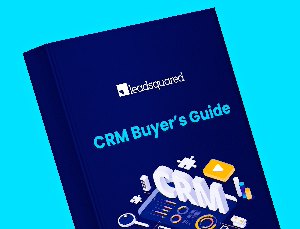Clearly, lead management software and CRM are two different things. But, sometimes the distinction is not completely evident, because there are quite a few features that overlap. In fact, both the terms are used quite loosely, and interchangeably to describe a system that manages the complete customer lifecycle.
I’ll try to briefly explain the difference between the two, to make sure that you and I are on the same page, as I wrap this guide on lead management system and its benefits.
The main distinction is evident in the names itself.
Lead management software, in a nutshell, is a system, that keeps all your leads, from all possible sources in one place, all the while tracking their activities, and interests. This enables marketing and sales teams to work together on the leads, never missing out any interaction or touch-points.
CRMs, or Customer Relationship Management systems, can essentially do the same things as well, but they are used for much more. They are used not only to manage the complete customer lifecycle from capture to conversion, but beyond as well, to retain the customer, find opportunities to up-sell, and up-sell wherever possible.
Let’s check out the customer life cycle to get more clarity:

For different business types, and requirements, the definition of CRM changes, just like it does in case of lead management. Suhas, the CRM Implementation Expert at LeadSquared, has explained this in his CRM Guide here.
The two differ in:
1) Their position in the customer acquisition cycle
Essentially, you can say that the work of Lead Management System ends with a lead becoming a customer, but a CRM carries on still, and helps manage customer relationships even after.
2) The kind of businesses that’ll use them
Businesses where the interaction with a customer ends with the sale, would go for a pure lead management system, with nothing monitoring the customer lifecycle. However, for businesses where a one-on-one relationship needs to be maintained with the client, would go for a CRM system.
Now, we must remember that many businesses would choose to use either both lead management and CRM, or a single system that’ll take care of both their use cases, something like LeadSquared.
I’ll wrap this up for now, hoping that you got some clarity about lead management, its process, the benefits of using it, the different types of systems that’ll be used by businesses based on their requirements, and its difference with a CRM system. If you have any question at all about the topic, please drop me a mail, and I’ll be happy to help you out.
FAQs
The choice depends on your business stage and needs. Lead management systems are ideal for capturing and nurturing leads early in the sales funnel. They focus on converting leads into qualified opportunities. CRMs, on the other hand, manage the entire customer lifecycle, including sales, marketing, and customer service. If you’re a growing business focused on lead generation and conversion, an LMS might be a good starting point. However, as your business matures and customer relationships become more complex, a CRM will be more beneficial.
Not necessarily, but they can work together seamlessly. If you’re using an LMS currently, consider looking for a system that integrates with a CRM you might adopt in the future. This ensures a smooth transition and avoids data silos when your needs evolve.
User-friendliness is crucial. Both LMS and CRM providers offer solutions with intuitive interfaces and clear navigation. Many even provide training resources or in-house support to help your team get comfortable with the system. Choose a system that caters to your team’s technical expertise and offers the necessary support to ensure smooth adoption and maximize the benefits of the chosen tool.









